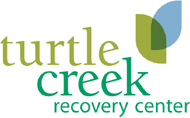Heroin Addiction
Due to the drug’s highly addictive nature, an addiction to heroin is one of the most difficult addictions to get over, but it is possible. However, the most important thing to understand when suffering from a heroin addiction is that just like any other kind of addiction, it is a mental and physical disease that needs the proper medical treatment and therapy to be overcome. One of the best treatments for a heroin addiction is to be admitted into an inpatient drug rehab facility specializing in heroin detox.
Detox Centers
Detox centers are designed to aid the heroin addict through the physical symptoms of heroin withdrawal. Withdrawal symptoms generally begin within 12 hours of the last dose of heroin and can last between five to seven days. Symptoms of heroin withdrawal include:
- Anxiety
- Agitation
- Profuse sweating
- Muscle aches
- Abdominal cramping
- Diarrhea
- Nausea
- Vomiting
While heroin withdrawal symptoms are usually not life threatening, they are extremely uncomfortable. Heroin detox centers administer medications in order to diminish the discomfort of withdrawal symptoms. Some heroin detox centers may offer rapid detox programs, where high doses of opiate blocking drugs are administered to speed up the detox process. In this scenario, the patient is usually put under anesthesia to avoid the withdrawal experience.
Drug Replacement Treatment
Heroin is so addictive because it attaches to pleasure receptors in the brain and the brain stem. The drug initially creates an intense sensation of euphoria, but since heroin is actually a depressant, the receptors become unable to recreate the sensation of pleasure on their own. This, combined with physical withdrawal symptoms, create an intense craving for more heroin. Most heroin addicts benefit from a drug replacement treatment to control cravings as part of their heroin rehab program.
Methadone is the most common medical treatment for heroin rehab. Since methadone is an opiate like heroin, it curbs the craving for heroin without the high, allowing the patient to function normally. Methadone is habit forming, and is a strictly controlled substance. Patients must receive the methadone in person from a licensed methadone clinic or rehab center.
Buprenorphine, also known as Suboxone, is another drug commonly used for heroin rehab and is considered a safer and less addictive alternative to Methadone. While still an opiate, it is much less concentrated, with a much lower risk of addiction and abuse. Buprenorphine can be prescribed by a doctor, freeing the heroin rehab patient from daily trips to receive methadone.
Therapy and Support Groups
Individual or group therapy and/or support groups can be an instrumental part of heroin rehab. Therapy can provide strategies for recognizing and avoiding external triggers that can lead to relapse, as well as identifying and dealing with underlying factors that led to heroin abuse. Support groups can provide a support system with individuals who understand and have already been through the recovery process. While no one method of rehab works best for everyone, most addicts achieve recovery using a program that effectively combines medical detox, drug replacement and therapy.




